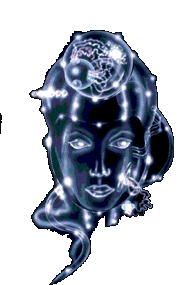Website Sections
- Home Page
- Library of Eugenics
- Genetic Revolution News
- Science
- Philosophy
- Politics
- Nationalism
- Cosmic Heaven
- Eugenics
- Transhuman News Blog
- Future Art Gallery
- NeoEugenics
- Contact Us
- About the Website
- Site Map
News Categories
- Artificial Intelligence
- Astronomy
- Cyborg
- Eugenics
- Freedom
- Futurism
- Futurist
- Liberty
- Nanotechnology
- NASA
- Spirituality
- Transhuman
- Mesothelioma
Partners




Radical Intervention
While we are still at an extremely early stage in our understanding
of human genetics, it is entirely foreseeable that future
knowledge will permit us to go beyond simple genetic
tinkering to replace this or that disease-engendering gene or
enhance some desirable ability or personality trait. We will
be able to go much further and alter the genetic constitution
in the most radical fashion. As pointed out by the bioethicist
and theologian Joseph Fletcher as early as 1973, the creation
of persons whose genome is partly borrowed from other species
is entirely possible.
Recent writing now discusses the
“fungibility” of DNA, the consequent malleability of life, the
fact that human nature is not fixed, the possibility that at
some future point different groups of human beings may follow
divergent paths of development through the use of genetic
technology – perhaps as different from one another as
men and women are now, the collapse of interspecies barriers,
the possibility of not simply discovering genes but creating
them. Should we really attempt to preserve human nature
or should we attempt to change it?
John H. Campbell, a biologist at the University of California,
is among those who advocate radical interventionism.
He writes that Geneticists are laying open our heredity like the circuit
board of a radio…. We shall be able to redesign our biological
selves at will…. In point of fact, it is hard to imagine
how a system of inheritance could be more ideal for
engineering than ours is.
Reasoning that the majority of humankind will not voluntarily
accept qualitative population-management policies,
Campbell points out that any attempt to raise the IQ of the
whole human race would be tediously slow. He further points
out that the general thrust of early eugenics was not so much
species improvement as the prevention of decline.
Campbell’s eugenics, therefore, advocates the abandonment
of Homo sapiens as a “relic” or “living fossil” and the
application of genetic technologies to intrude upon the genome,
probably writing novel genes from scratch using a
DNA synthesizer. Such eugenics would be practiced by elite
groups, whose achievements would so quickly and radically
outdistance the usual tempo of evolution that within ten generation
the new groups will have advanced beyond our current
form to the same degree that we transcend apes.
Campbell anticipates the creation of new species according
to the punctuated equilibrium scenario discussed earlier.
Practitioners of the new eugenics would view themselves as
intermediaries of evolution rather than as finished products.
Freed from the “drag” of an outdated species that is already
in decline, they could evolve in intelligence in a geometrical
increase – forever. Our current intellect, Campbell projects, is
probably unable even to comprehend the mental attributes
that descendants will struggle to conceive. He then goes on to
advocate an old idea – eugenic religions. Not accidentally, one
of the sites circulating Campbell’s article is that of “Prometheism.”
Lastly, he points out that some appropriate genetic
technologies are already available:
Private autoevolution is not a possibility for a distant future
nor is it a science fiction. It is with us now, albeit at
an early enough phase to have escaped most people’s attention….
The most significant legacy of our age will not
be nuclear power, computers, political achievements or a
static ethics for a “sustainable” society. It will be the closure
of our rational intellect around our evolution. The
statues of the 21st century will celebrate the fathers of
Homo autocatalyticus who brought evolution under its
own reason. The world waits to see whose faces will adorn
them.
Campbell’s projection of rapid, small-group-directed evolution
is at once heartening and depressing. Greater, even
open-ended, intelligence is awesome to contemplate. On the
other hand, how sad it is for those “living fossils” who constitute
the mass of humanity – humanity, at least, as we know
it today.
The reader will recall that eugenics does not limit itself
to the present population but defines society as the entire
human community over time; the movement perceives itself
as the fourth leg of the table upon which that community
rests. (The three other legs are a supply of natural resources;
a clean, biodiverse environment; and a human population no
larger than the planet can comfortably sustain on an indefinite
basis.) This means that we are dealing with what eugenicists
consider to be non-negotiable issues. Such conditions
are viewed as either essential to survival or intrinsically
linked to the very meaning of existence. All other considerations
– political parties, for example, or even the welfare
of today’s population – are perceived as flowing from and
subordinate to these fundamental necessities.
What this means is that if the eugenics platform is to
have any chance of success it will have to adopt a posture of
non-partisanship and link itself to neither the political right
nor the left. At the same time, for strategic considerations,
the movement cannot afford embroilment in inter-group conflict
or even inter-group comparisons. While these areas may
constitute legitimate concerns for the political scientist, the
sociologist, or the human biologist, history has demonstrated
that their pursuit within the eugenic agenda can be counterproductive
and even disastrous. Scholars and scientists wishing
to promote the eugenics agenda will have to search for
commonalities with other thinkers rather than enter into
conflict with them. Ideological separation will require a selfdiscipline
that no one will readily embrace. To be honest,
some of these topics can be of eugenic significance. At the
very least, they can intersect with eugenic considerations.
Presently, such self-control is not even being attempted.
A post-human or even a non-human evolutionary path to intelligence
– as opposed to a general uplifting of the whole
population – therefore appears more and more likely.
Legal barriers are already being erected in a frantic attempt
to prevent a resurgence of eugenics, but to believe that
such measures can be completely effective is a hopeless fantasy.
Campbell’s logic is inescapable. The rejection of traditional
within-species eugenics – despite all the posturing of
society – will inevitably lead to the scenario he describes.
The invention of writing created a global human mind, in
which knowledge is passed on and accumulated over generations.
In the process, individual people specialize in specific
fields, and no one today would be tempted to speak of “universal
geniuses.” There is simply too much to know.
While the human brain has been millions of years in the
making, computers, which have been in development really
for only about a century, are already beating the best human
players at chess. “Hal” may not yet have been born but he is
even now kicking in his binary womb.
Carbon-based technology has its limitations. The individual
human brain is limited by its size, by the amount of
time available for learning, and by the speed at which it can
process information. A computer can be created of any size
with limitless memory and limitless programming. As for
speed, current technology is already processing information
in picoseconds (trillionths of a second), whereas the human
brain is capable of mere microseconds.
The human mind is itself a machine, and its quirks, self consciousness,
and adaptability will all eventually be explained,
even though we are only beginning to unlock its secrets.
Currently a noisy debate is ongoing as to whether computer
brain power can surpass human, but really it is a question
of when rather than whether. The two societies projected
by H.G. Wells in The Time Machine, one producing material
goods and the other, childlike, consuming them, are probably
going to arrive sooner than we think, and the childlike creatures
will be us. This soon-to-be reality relegates to eugenics a far more
modest role than would otherwise be imaginable. Any effort
to improve the human brain is targeted at an instrument
which is inherently limited in its capacity. The machine
brain, on the other hand, will be something like God.
Allotted only a thousand months or so of existence, we
individuals are as ephemeral as chaff in the wind, but the
fate of thought, of culture, of life itself has been thrust upon
us, and we can either fritter away the patrimony of millions
of generations in the gratification of individualistic and tribal
instincts or we can stride forward to fulfill our fate, shouldering
our responsibilities to a future world and linking hands in
the great chain of generations.
Transtopia
- Main
- Pierre Teilhard De Chardin
- Introduction
- Principles
- Symbolism
- FAQ
- Transhumanism
- Cryonics
- Island Project
- PC-Free Zone





More News
- Aerospace
- Astro Physics
- Beaches
- Eco System
- Gene Therapy
- Genetic Engineering
- Genetic Medicine
- Health Care
- Human Genetics
- Islands
- Libertarian
- Libertarianism
- Medical School
- Medicine
- Mind Upload
- Molecular Medicine
- Moore's Law
- Nano Engineering
- Nano Medicine
- Planetology
- Red heads
- Space Flight



